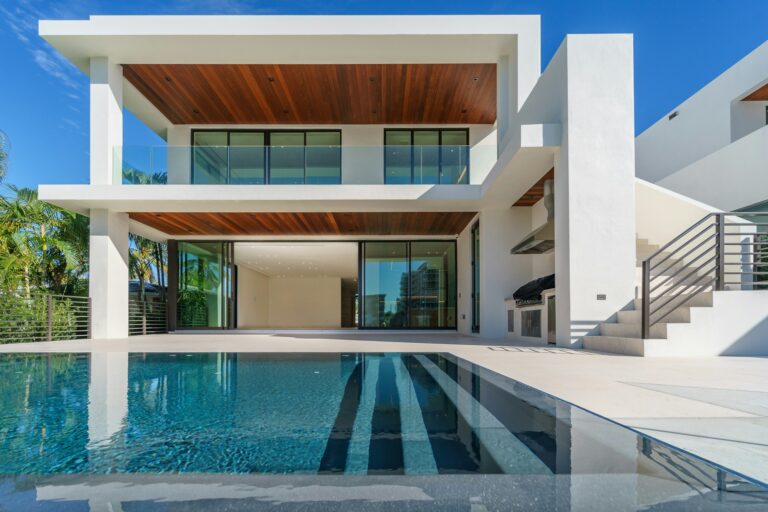Property Tax: Real Estate Taxes in Switzerland
Reading time — 7 minutes

If you are considering buying property in Switzerland, real estate taxes are one of the most crucial elements to take into account. With ever-evolving regulations that differ from one canton to the next, Swiss real estate taxation can be a complex issue that buyers and sellers alike can gain a lot by mastering. Property tax, wealth taxes, property transfer tax, imputed rental value tax… Here’s what you need to know about real estate taxes in Switzerland.
Real Estate Taxes in Switzerland: How Does It Work?
Real estate taxes in Switzerland encompass multiple elements that, as a homeowner, you need to consider before even having an expert estimate your property. As a buyer, understanding that purchasing property implies various one-off and recurring taxes will help you make the right call and optimize your financial package.
The moment the notary’s fees are paid, the tax authorities get their first share. Property tax, wealth tax, and property gains tax are then added.
The differences between cantons complicate the rules. Property gains tax is not the same in Geneva as in the canton of Vaud, for instance. The amount also varies based on how long you have owned the property.
The experts at FGP Swiss & Alps are there to guide you through the subtleties of property buying or selling in Switzerland.
The Swiss Taxation System: To Each Canton, Its Property Tax
Property tax does not apply everywhere in Switzerland. Thus, the cantons of Zurich, Neuchâtel, Basel-Landschaft, Glarus, Zug, Solothurn, Schwytz, and Aargau are exempt.
Elsewhere, property tax serves as “fiscal compensation for the use of part of the municipal territory”. It is calculated based on the overall value of the property, irrespective of any debts contracted to purchase it.
Imputed Rental Value: A Key Element of the Swiss Property Taxation System
The notion of rental value has been central to the Swiss real estate taxation system. This figure – used in the calculation of your taxes – corresponds to the income your property would generate if it were rented. This theoretical value is equal to 60 to 70 percent of the property’s market value.
The imputed rental value tax applies to any home used as a primary residence. The “taxable property income” it represents concerns every homeowner, regardless of whether they rent out their property. Property maintenance, administration, and operating costs may be deducted from the taxable income… With that said, this – along with the notion of rental value – is about to become irrelevant.
Switzerland Does Away With the Rental Value Tax
On 14 June 2023, the Swiss National Council adopted a new housing tax system, eliminating the concept of rental value.
Previously, homeowners were required to declare rental value as taxable income, even if there was no income.
Why tax people on this fictitious income? Rental value was treated as income in kind, as the owner could lodge in their own property rent-free. Introduced as an extraordinary tax during the First World War, the imputed rental value tax no longer aligns with today’s realities. Some even see it as a disincentive to home ownership in Switzerland, where the proportion of homeowners is much lower than in neighboring European countries.
After several unsuccessful attempts, the new proposal to end the rental value tax has prevailed at the National Council by 158 votes to 31. The text will then go before the Council of States before being put to a popular vote.
Homeowners will no longer be taxed based on their property’s potential rental income. The measure puts an end to the rental value tax in Switzerland for primary and secondary residences alike.
In return, carried interest deductibility will be limited to 40% of the taxable return on assets. It should also be noted that maintenance costs will no longer be deductible, with the exception of restoration work on historic monuments.
Finally, first-time buyers of residential property for personal use will benefit from special treatment. They can deduct their carried interests up to CHF 10,000 for spouses and CHF 5,000 for other taxpayers. From the second year onwards, the maximum deduction is reduced by 10% each year until 40% is reached.
Property Wealth Tax in Switzerland
Real estate taxes in Switzerland include an annual wealth tax with a sliding-scale rate ranging from 0 to 1% depending on the canton and the taxpayer’s situation.
Legally, any investment that generates income or profits, including movable assets like bank balances, life insurance policies, and shares in companies, is considered “wealth.” Real estate is also included, but household goods and personal effects are exempt from wealth tax.
Wealth tax is calculated based on a property’s value and varies by canton. All property must be declared to tax authorities, who consider the nature and mode of acquisition, not just the purchase price. Mortgages are also taken into account.
The tax value of your property will be reassessed regularly. You are obligated to notify the tax authorities of any changes, such as work that increases its value.
Wealth Tax: Cantonal Variations
Real estate taxes in Switzerland vary from one canton to the next. Wealth tax, in particular, is levied by the cantons, each of which may have its own definition of “wealth”. In Geneva, any works of art displayed in the owner’s home are exempt from wealth tax, as they are considered moveable. Conversely, in Zurich, all works of art are part of the taxpayer’s wealth.
These disparities are also reflected in the calculation of real estate assets and taxes. Some cantons focus on market value, while others look at returns. Deductibles and brackets can fluctuate widely as well.
Property Transfer Tax and Property Gains Tax in Switzerland
Property resale also has dedicated taxation mechanisms: the property transfer tax and property gains tax.
Property Transfer Tax in Switzerland
In Switzerland, property transfer taxes are levied by the cantons or, in some cases, by the municipalities. This tax – typically paid by the buyer (although some cantons tax the seller as well) – is applied to the transfer of ownership of a building or plot. The amount is based on the selling price.
Note that transfer taxes don’t apply in every canton. In Schwytz, Aargau, Glarus, Uri, Zug, Zurich, Ticino, and Schaffhausen, you won’t have to pay any transfer tax. You will, however, have to pay transfer or land registry fees to the notary.
Property Gains Tax
Under the real estate taxation system, the main tax payable when an individual sells property in Switzerland is the property gains tax. As often, the rules differ from canton to canton, and the amount is calculated according to how long the property has been held (the shorter the period of ownership, the higher the tax), as well as a tax percentage. Where there are no capital gains, no property gains tax is payable. Finally, you can see the amount of your property gains tax reduced if you use the profits from selling one property to buy another. Tax payments can then be deferred, and a deduction is applied based on the proportion of the profit used for the new purchase.
In Switzerland, property gains tax is calculated using the following formula:
(Sale Price – Purchase Price) x tax rate applied by the canton according to your situation / 100
What you get is the amount of your capital gains tax to be paid to the tax authorities.
Swiss Property Gains Tax Rates
Tax rates on property gains are subject to significant variations from one canton to another. In Geneva, for instance, property gains are taxed at a rate of 50 percent for the first two years, gradually falling to 2 percent after 25 years.
In the canton of Vaud, the scale is more degressive than that of Geneva’s property gains tax but never falls below 7%, reached in the 24th year. It starts at 30% in the first year, decreasing to 15% after 8 to 9 years, and so on.
In Fribourg, the property gains tax rate starts at 22% for the first two years and remains at a minimum of 10% from the 15th year onwards.
The amount of tax payable on property gains depends on how long the property has been held. Generally speaking, the more substantial the profit on a sale and the shorter the period of ownership, the higher the tax.
Determining your specific tax scale is an important step in buying real estate in Switzerland. The experts at FGP Swiss & Alps are there to provide you with all the information you need.
Key Facts About Real Estate Taxes in Switzerland
Differences in tax bases and rules make real estate taxes in Switzerland a complex issue. Location, household composition, and ownership duration can impact tax expenses for property owners.
Owners will need to prioritize tax planning as the elimination of the rental value tax limits deductions. Tax planning should become a priority for buyers, owners, and sellers alike.
Your FGP Swiss & Alps broker will help you estimate the real estate tax associated with the purchase and ownership of a house in Switzerland. They can also inform you about canton-specific rules affecting your situation.
FGP Swiss & Alps specializes in rare and prestigious properties. We offer tailor-made services to meet the high expectations inherent to luxury real estate. Buying a luxury property should be a beautiful story imbued with dreams and wonder. By relieving you of the practical aspect of property buying – from your property diagnosis to selecting your notary – and offering you homes that meet your standards while preserving your interests, we give substance to an authentic vision where time reclaims its rights, allowing you to slow down and appreciate every moment.
Discover similar articles

Equestrian competition at La Sallivaz

The Home Buying Process in Switzerland: All You Need to Know About Purchasing Luxury Real Estate



